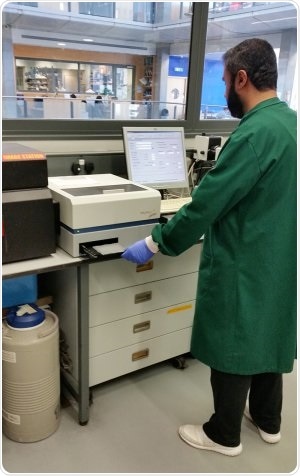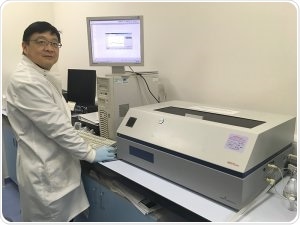A story of sustainable and reliable products and personal customer support
From the outset BMG LABTECH’s mission was to develop microplate readers guaranteed to provide optimum performance for years. BMG LABTECH has continued this philosophy while continuing to remain at the forefront of microplate reading, always introducing innovative and unique technologies. All microplate readers are built to be extremely reliable and robust over decades, some of BMG LABTECH’s very first products are still in use across the globe.
Reliable products easy to use
 Imperial College London (UK) is working with one of the first POLARstar Galaxy microplate readers, purchased 17 years ago. “We have used the machine for many different assays and have always got great results.
Imperial College London (UK) is working with one of the first POLARstar Galaxy microplate readers, purchased 17 years ago. “We have used the machine for many different assays and have always got great results.
It has primarily been used for cell-based assays, but we have also used it extensively for enzymes kinetics and chemical reactivity”, explained Nigel Gooderham, Professor of Molecular Toxicology at Imperial College. The robust design and build quality of BMG LABTECH’s readers ensure consistent performance over years of use.
“The service the machine has given has been outstanding and it truly has been multifunctional throughout its lifetime. We still have a range of assays that are routinely run on the POLARstar on a weekly basis and the reproducibility and accuracy is always excellent. The reliability and continuity we get from repeatedly using the same machine is very reassuring”, added Nigel.
First-class customer support
All microplate readers are designed, assembled and tested at the company’s headquarters in Germany. “Beside our high quality production standards, we attach great importance to maintaining close contact to customers and being at hand for technical, applications and software support over the years”, said Alexander Fischer, Service Manager at BMG LABTECH.
The company’s experienced application specialists and technical service experts help customers to optimize the instrument for their research and support them with their comprehensive knowledge in microplate reading technology. Analytik Jena (Germany) uses one of the very first POLARstar Galaxys, built and installed in 1998.
“For many years our POLARstar was used as test equipment in our internal QC system and thus had to be validated frequently by the manufacturer. Over all the time, this was done by the same very competent BMG LABTECH specialist who additionally was always ready to answer all my questions. Nearly all I know about fluorescence I got to know from him”, said Katrin Undisz, Application Specialist at Analytik Jena.

The University of Leicester (UK) uses a NOVOstar microplate reader that was installed in 2004. Since the installation, the reader has been in routine use in the laboratory for a number of different assays.
“The support that we have received from BMG LABTECH has been first-class. They have always strived to ensure that the machine is performing as it should and as we would like it to. There has always been somebody on the end of a phone ready to talk to me or alternatively to come in and help. This support has been extremely helpful over the years and I really appreciate the fact that it was available even when we were perhaps not well-financed”, said Gary Willars from University of Leicester.
Extensive Warranty
Every microplate reader purchased from BMG LABTECH is covered by an extensive warranty. “Following this warranty period we offer a range of services, designed to keep the instruments in optimum condition, maintain the alignment of the readers, check for potential problems and test all modes to ensure it is within specifications”, said Alexander Fischer.
BMG LABTECH also provides services such as preventative maintenance, service contracts and on site servicing, and offers spare parts and repair for ten years after instrument end of life. “The periodic servicing provided by BMG LABTECH has kept the machine in good working order and BMG LABTECH have always been responsive and efficient when we wished to purchase replacement parts, e.g.: alternative filters to develop new assays.” said Nigel Gooderham from Imperial College.
Reliability and a long operating life have been keys in the development of BMG LABTECH’s microplate readers. Jason Heath from the School of Clinical Dentistry, University of Sheffield (UK), uses a sixteen year old POLARstar Galaxy to read a range of assays such as protein quantification or detection of products labelled with fluorescein isothiocyanate, “We do have a second reader from another manufacturer in the school that was purchased approximately 8 years ago, this machine was purchased because it had the versatility of a diffraction grating system and was supposed to eventually supersede the older machine, despite our advice and input of how impressed we had been with our BMG LABTECH instrument .
Over the years this second machine has been out of action several times with various faults and shows none of the longevity of our original BMG LABTECH POLARstar, which has only ever been visited for very occasional routine servicing”, said Jason.
BMG LABTECHs long-lasting products deliver excellent and reproducible results over decades when routinely maintained. The company’s applications and technical support teams will be there for customers for the lifetime of their microplate reader.